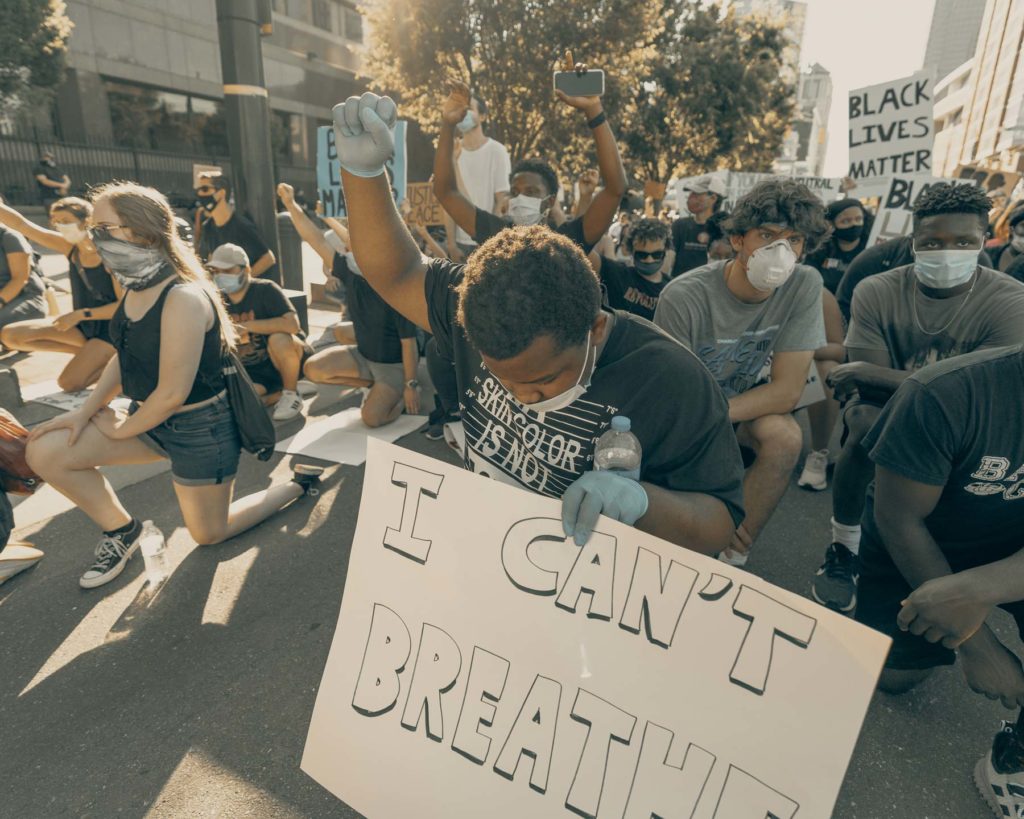Ireland Larsen is a senior at Drake University studying philosophy and law, politics, and society (LPS). She serves as president of Delta Theta Phi pre-law fraternity and organized the Justice For George movement in South Dakota, with the help of Selwyn Jones (Floyd’s uncle) while also assisting in setting up bail projects for Iowa protestors.
On May 25th of 2020, the brutal reality for too many black Americans was illuminated in the murder of George Floyd. I recall speaking to one of Floyd’s family members and feeling powerless, as though something desperately needed to change and I didn’t know where to start. This feeling of hopelessness was felt across the nation, and despite our inability to craft a diligent handbook, college students took to the streets in protest. For, during a time of uncertainty guided by a global pandemic and unsettled international affairs, students were anything but uncertain in that they must fight for a vision that was long overdue; one of justice and equality.
Through protests and social media outrage, students united in their observations of racial injustice within the United States. Our shared experiences with seeing racism or experiencing it have allowed us to gain insight of the wider social issue at hand. Assembling with millions across the nation with vastly different backgrounds and perspectives, students aligned to resist racial injustice, creating a valuable space for moral inquiry. We learned the importance of elevating black voices, using protests to activate meaningful change, and the power of our collective will. Moreover, we understood the weight of this movement and the possibility that we could ensure that our American values and the rights proclaimed in the U.S. Constitution were finally fulfilled. For, we knew that change was not coming unless we were the ones to enact it. As college students, it is often expected that we gain our knowledge of the world through our professors and inside the classroom. Yet, the Black Lives Matter movement has arguably taught us more about the world and our collective power than any curriculum.
Refusing to let the unrest disappear without a social revolution, students are now asking what comes next. The previous unrest has generated a scrutinizing discussion regarding the mistreatment of people of color, but that is simply not enough. Pinpointing the pressing issues of our time was the first step. Now, the power rests in our ability to elect politicians serious about racial justice, dismantle systems that are bound in institutional racism, and establish creative methods to ensure equal opportunity for all Americans.
How college students and those working with the Black Lives Matter Movement decide to focus this evolution will determine the futures of millions of Americans that have been disadvantaged and deprived of equal rights. As students, it is our duty to conduct skillful research, uncover the truth, and employ what we have learned to create purposeful change. We have discovered the gravity of working together, the commitment and active engagement necessary to fulfill this movement, and the reality of the inherent responsibility of the future resting in our hands. The promises of equality and justice have been broken for far too long and despite a global pandemic and rocky politics, it is time. For, it is always the right time to be a student on the right side of justice.
